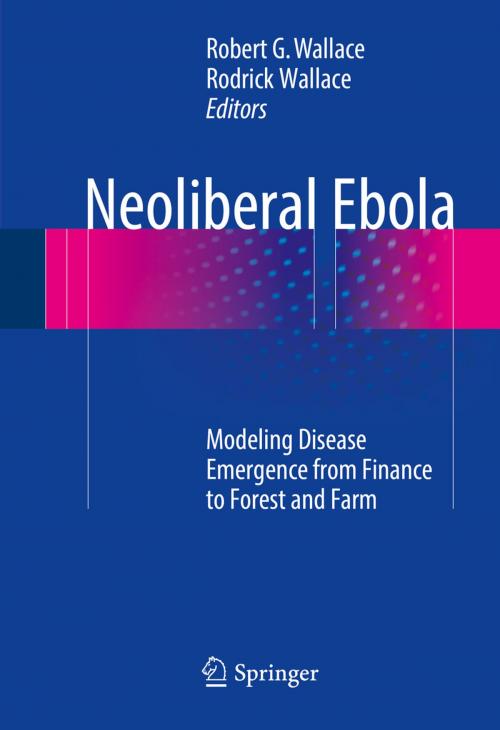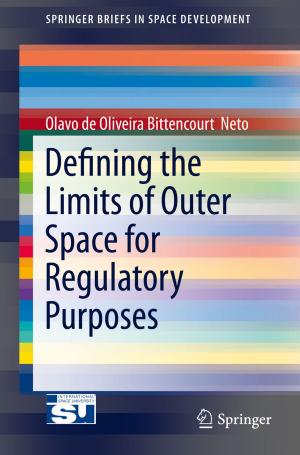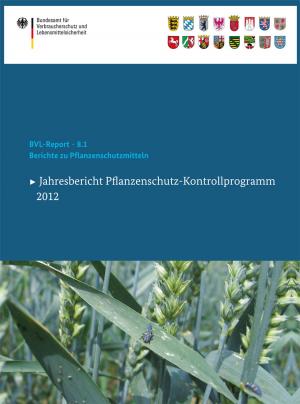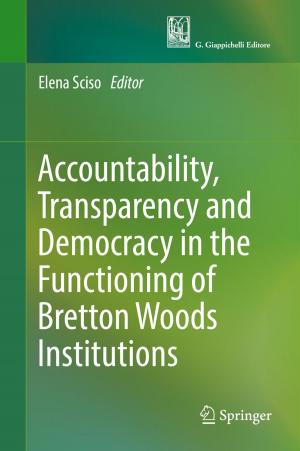Neoliberal Ebola
Modeling Disease Emergence from Finance to Forest and Farm
Nonfiction, Health & Well Being, Medical, Reference, Public Health, Science & Nature, Science, Biological Sciences| Author: | ISBN: | 9783319409405 | |
| Publisher: | Springer International Publishing | Publication: | August 29, 2016 |
| Imprint: | Springer | Language: | English |
| Author: | |
| ISBN: | 9783319409405 |
| Publisher: | Springer International Publishing |
| Publication: | August 29, 2016 |
| Imprint: | Springer |
| Language: | English |
This volume compiles five papers modeling the effects of neoliberal economics on the emergence of Ebola and its aftermath. Neoliberalism is currently the world’s primary economic philosophy. It centers international relations around globalizing laissez-faire economics for multinational companies, promoting free trade, deregulating economic markets, and shifting state expenditures in favor of private property. The multidisciplinary teams represented here place both Ebola Makona, the Zaire Ebola virus variant that has infected 28,000 in West Africa, and Ebola Reston, which is currently emerging in industrial hog farms in the Philippines and China, within a multi-plank modeling framework. Using a stochastic extinction model that one group spatializes, environmental stochasticity across the ecologies in which Ebola evolves is treated as an ecosystemic prophylaxis. An agroecological logic gate is developed for epidemic control. A Black-Scholes model explicitly links economic margins across agricultural systems to success in biocontrol. This new control theory is further developed around the data-rate and rate-distortion theorems, a turbulence model, and cognitive symmetry breaking. Lastly, a model of pandemic penetrance is used to explore the domino effects of serious outbreaks amplifying through the cascades of disasters that can follow deadly pandemics. All the models presented are contextualized by socioeonomic geographies specific to outbreak locales.
Together the models suggest shifts in regional agroeconomics under the neoliberal doctrine, driving deforestation and monoculture production, destroying the ecosystemic “friction” with which local forests typically disrupt Ebola transmission. The resulting collapse in such an ecological function accelerates pathogen spillover and propagation across the remaining host populations. The failure on the part of current control efforts to assimilate such a structural context may render even an efficacious vaccine dysfunctional. The authors propose an alternate science of disease and an adjunct program of interventions useful to researchers and public health officials alike.
This volume compiles five papers modeling the effects of neoliberal economics on the emergence of Ebola and its aftermath. Neoliberalism is currently the world’s primary economic philosophy. It centers international relations around globalizing laissez-faire economics for multinational companies, promoting free trade, deregulating economic markets, and shifting state expenditures in favor of private property. The multidisciplinary teams represented here place both Ebola Makona, the Zaire Ebola virus variant that has infected 28,000 in West Africa, and Ebola Reston, which is currently emerging in industrial hog farms in the Philippines and China, within a multi-plank modeling framework. Using a stochastic extinction model that one group spatializes, environmental stochasticity across the ecologies in which Ebola evolves is treated as an ecosystemic prophylaxis. An agroecological logic gate is developed for epidemic control. A Black-Scholes model explicitly links economic margins across agricultural systems to success in biocontrol. This new control theory is further developed around the data-rate and rate-distortion theorems, a turbulence model, and cognitive symmetry breaking. Lastly, a model of pandemic penetrance is used to explore the domino effects of serious outbreaks amplifying through the cascades of disasters that can follow deadly pandemics. All the models presented are contextualized by socioeonomic geographies specific to outbreak locales.
Together the models suggest shifts in regional agroeconomics under the neoliberal doctrine, driving deforestation and monoculture production, destroying the ecosystemic “friction” with which local forests typically disrupt Ebola transmission. The resulting collapse in such an ecological function accelerates pathogen spillover and propagation across the remaining host populations. The failure on the part of current control efforts to assimilate such a structural context may render even an efficacious vaccine dysfunctional. The authors propose an alternate science of disease and an adjunct program of interventions useful to researchers and public health officials alike.















